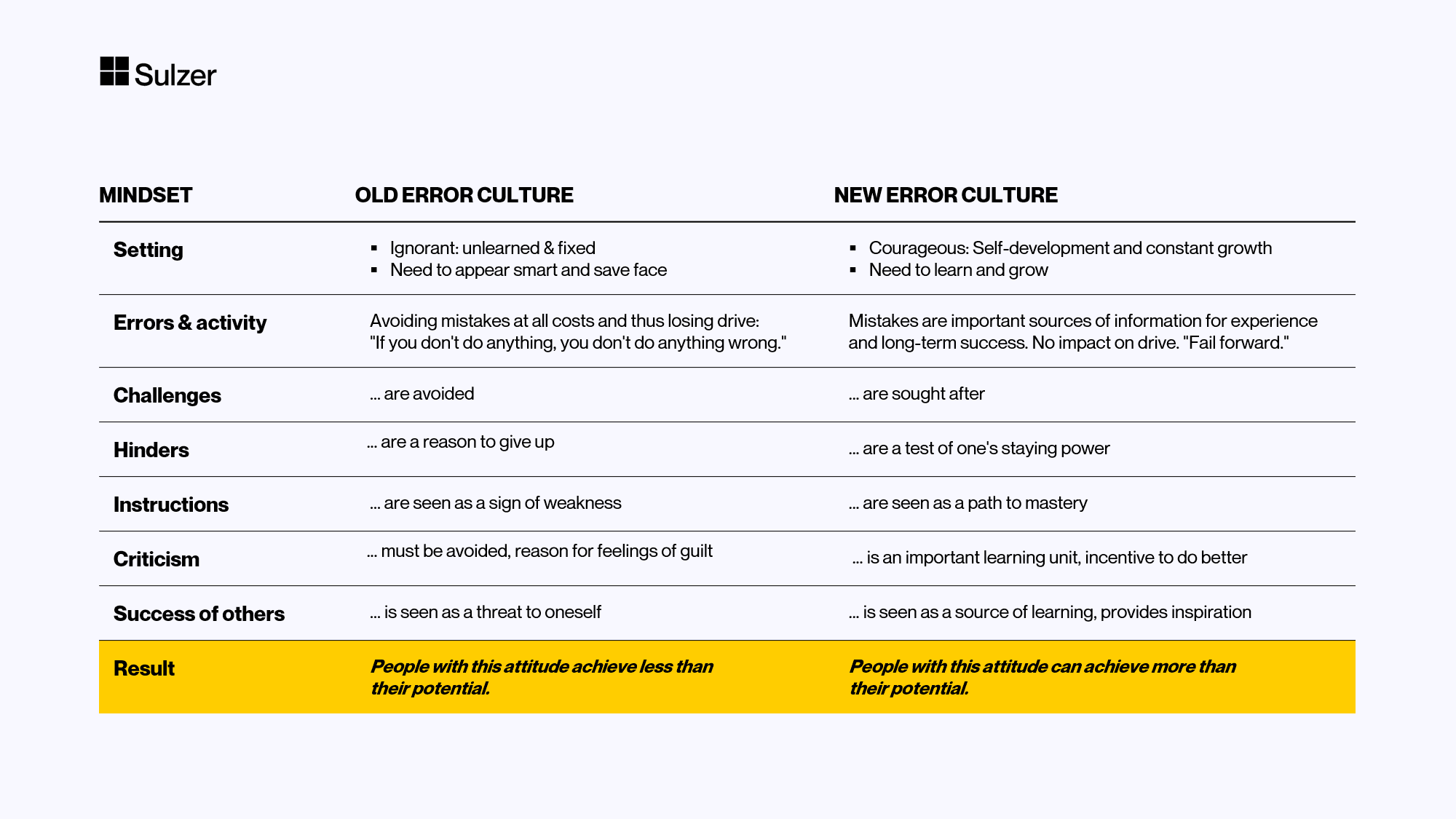An open error culture must be actively lived in companies. At Sulzer, we do this every day in our projects. In order to raise awareness for a positive approach to errors throughout the company, we also regularly exchange ideas on this topic, most recently in a very practical way during a so-called FuckUp Night in our Agile Community.
What is a FuckUp Night?
What did we experience during it? Why do we at Sulzer believe that an active culture of error in every company is breeding ground for positive change processes?
FuckUp Nights have been a popular phenomenon for several years and they are literally celebrated in corresponding events. Talking about (entrepreneurial) mistakes for a new culture of failure, has become fashionable. But especially in Germany, people still have a hard time dealing with mistakes and setbacks.
The primary goal of a FuckUp Night is to learn from the mistakes of others and to accept one’s own. The whole thing should happen in a deliberately relaxed and humorous atmosphere. With this model in mind, we invited our Agile Community to an in-house FuckUp Night and had a good laugh, asked exciting questions and gained interesting insights. We have summarized the most important ones for you and your company.
Openness and honesty
Setting of the FuckUp Night at Sulzer: employees from very different areas and hierarchy levels told about their failure. The reports touched on very different contexts and yet had much in common.
- Failure hurts and can be scary
- Failure is often only funny in retrospect
- When we fail, we question ourselves
- My failure usually also affects my environment (possibly negatively)
Now this does not sound very positive at first, however, it is a key ingredient for failure and its acceptance.
Learn from mistakes together
- But mistakes are at the same time important impetus for positive developments – if they are told and learned from. And that should also be the focus.
- Toss previous roadmaps overboard and experiment instead – this opens new horizons.
- Mistakes are only made on familiar paths. Who tries new things and dares, commits only mistakes.
- Misfortunes can be a starting point for an exciting path.
- If a mistake still feels bad, then it is not the end of the story: the learning and the resulting benefits still lie in the future.
- Mistakes by others we have all experienced in a similar form – so we are in good company with our failures.
- Don’t give so much credence to the voice in your head: the thoughts that arise are usually much worse than the reality.
- Whoever dares to do something more often in order to improve, becomes more courageous over time – a positive spiral sets in motion and you react more calmly to negative feedback.
- Improvements from feedback are worth their weight in gold.
- Start with small experiments and increase over time.
Growth Mindset – deal positively with mistakes and errors
By the way, the new way of dealing with errors and mistakes has a name: Growth Mindset. We have summarized for you the differences between classic error culture and new error culture at a glance.
We wish you success in establishing a new culture of error in your company.
We make the impossible possible – get to know our corporate culture.
Learn more about modern collaboration models?
Our agile community team will be happy to advise you.





